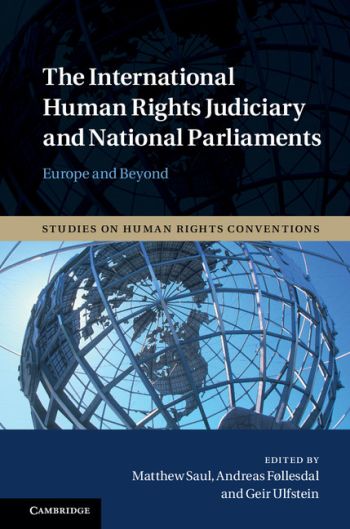
The emerging international human rights judiciary (IHRJ) threatens national democratic processes and 'hollows out' the scope of domestic and democratic decision-making, some argue. This new analysis confronts this head on by examining the interplay between national parliaments and the IHRJ, proposing that it advances parliament's efforts. Taking Europe and the European Court of Human Rights as its focus - drawing on theory, doctrine and practice - the authors answer a series of key questions. What role should parliaments play in realising human rights? Which factors influence the effects of the IHRJ on national parliaments' efforts? How can the IHRJ adjust its influence on parliamentary process? And what triggers the backlash against the IHRJ from parliaments and when? Here, the authors lay foundations for better informed scholarship and legal practice in the future, as well as a better understanding of how to improve the effectiveness and validity of the IHRJ.